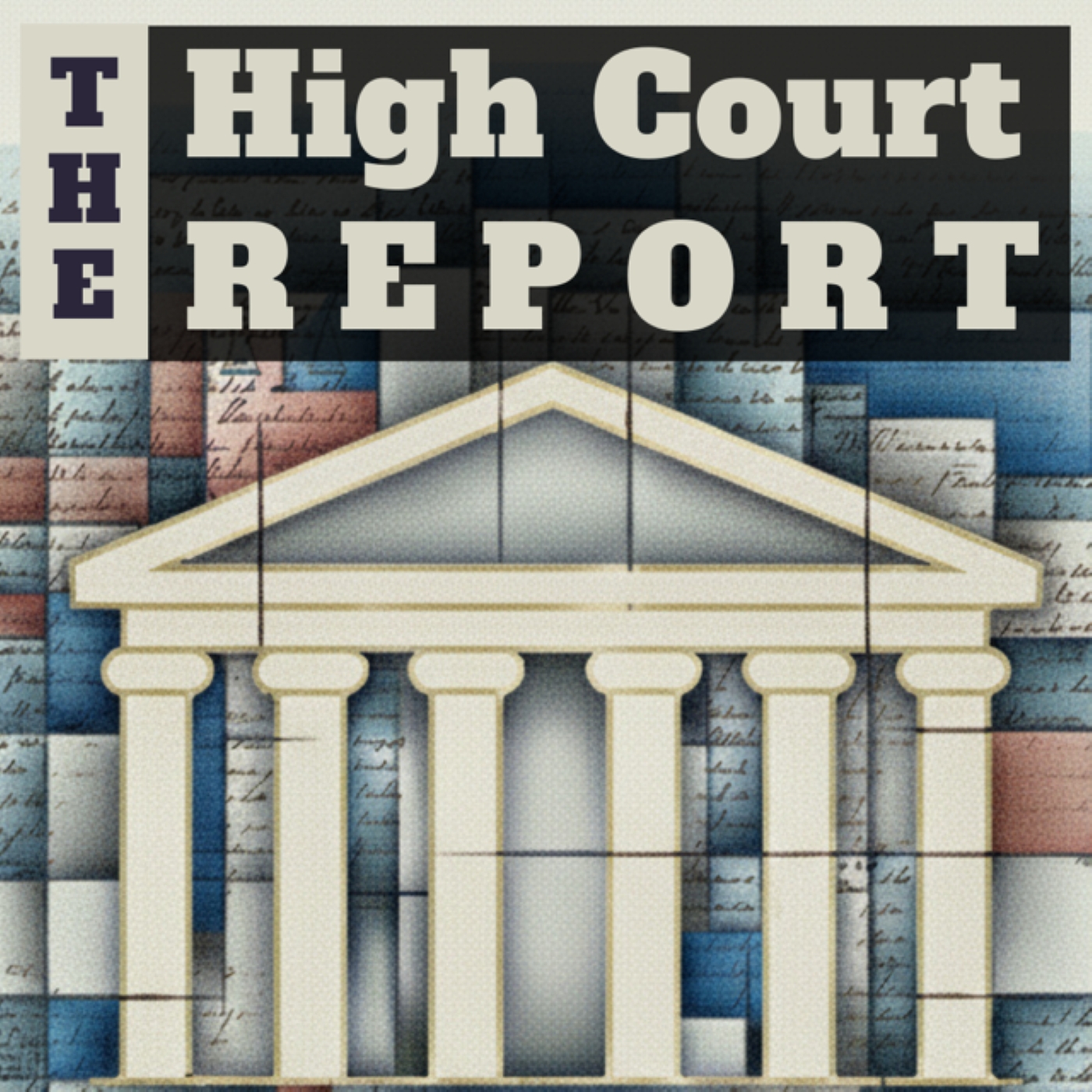Episode 107
Opinion Summary: Trump, President of U.S. v. Casa, Inc. | Date Decided: 6/27/25 | Case No. 24A884
Opinion Summary: Trump, President of U.S. v. Casa, Inc. | Date Decided: 6/27/25 | Case No. 24A884
Links to Docket: Here (Case No. 24A884); Here (Case No. 24A885); and Here (Case No. 24A886).
Questions Presented:
- Whether the Supreme Court should stay the district courts' nationwide preliminary injunctions on the Trump administration’s 1/20/25 executive order ending birthright citizenship except as to the individual plaintiffs and identified members of the organizational plaintiffs or states.
- Whether district courts have the authority to issue nationwide preliminary injunctions irrespective of class-action certification.
Background:
- On January 20, 2025, President Trump issued an Executive Order regarding birthright citizenship.
- Section 1 of the Order recognizes that the Constitution and the Immigration and Nationality Act (INA), 8 U.S.C. 1101 et seq., confer citizenship upon all persons born in the United States and subject to the jurisdiction thereof.
- Specifically, the Fourteenth Amendment to the U.S. Constitution provides that “[a]ll persons born or naturalized in the United States, and subject to the jurisdiction thereof, are citizens of the United States and of the State wherein they reside.” U.S. Const. Amend. XIV, § 1. That provision, known as the Citizenship Clause, repudiated Dred Scott v. Sandford, 19 How. 393 (1857), which infamously misinterpreted the Constitution to deny U.S. citizenship to people of African descent based solely on their race. Congress has reaffirmed the Citizenship Clause in the INA, which provides that “a person born in the United States, and subject to the jurisdiction thereof,” is a citizen of the United States. 8 U.S.C. 1401(a).
- Section 1 of the Order identifies two circumstances in which a person born in the United States is not subject to its jurisdiction: “(1) when that person’s mother was unlawfully present in the United States and the father was not a United States citizen or lawful permanent resident at the time of said person’s birth, or (2) when that 6 person’s mother’s presence in the United States at the time of said person’s birth was lawful but temporary (such as, but not limited to, visiting the United States under the auspices of the Visa Waiver Program or visiting on a student, work, or tourist visa) and the father was not a United States citizen or lawful permanent resident at the time of said person’s birth.” Citizenship Order § 1.
- Section 2 of the Order directs the Executive Branch (1) not to issue documents recognizing U.S. citizenship to the persons identified in Section 1 and (2) not to accept documents issued by state, local, or other governments purporting to recognize the U.S. citizenship of such persons. See Citizenship Order § 2(a). Section 2 specifies that those directives “apply only to persons who are born within the United States after 30 days from the date of this order,” i.e., after February 19. Id. § 2(b).
- Three district courts in Maryland, Massachusetts, and Washington have issued overlapping nationwide injunctions at the behest of 22 States, two organizations, and seven individuals. Those universal injunctions prohibit a Day 1 Executive Order from being enforced anywhere in the country, as to “hundreds of thousands” of unspecified individuals who are “not before the court nor identified by the court.”
- Three Circuit Courts of Appeals refused to limit the nationwide injunctions.
Holding: Universal injunctions likely exceed the equitable authority that Congress has given to federal courts. The Court grants the Government's applications for a partial stay of the injunctions entered below, but only to the extent that the injunctions are broader than necessary to provide complete relief to each plaintiff with standing to sue.
Result: Applications for partial stays granted.
Voting Breakdown: 6-3. Justice Barrett delivered the opinion of the Court, in which Chief Justice Roberts and Justices Thomas, Alito, Gorsuch, and Kavanaugh joined. Justice Thomas filed a concurring opinion, in which Justice Gorsuch joined. Justice Alito filed a concurring opinion, in which Justice Thomas joined. Justice Kavanaugh filed a concurring opinion. Justice Sotomayor filed a dissenting opinion, in which Justices Kagan and Jackson joined. Justice Jackson filed a dissenting opinion.
Link to Opinion: Here.
Oral Advocates:
- For Applicants: D. John Sauer, Solicitor General, Department of Justice, Washington, D.C.
- For State and City Respondents: Jeremy M. Feigenbaum, Solicitor General, Trenton, N.J.
- For Private Respondents: Kelsi B. Corkran, Washington, D.C.
Website Link to Oral Argument: Here.
Apple Podcast Link to Oral Argument: Here.
